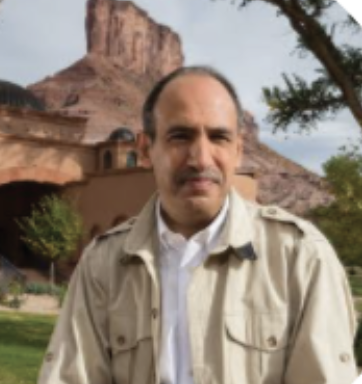Science tells us that practicing spirituality is vital to human flourishing. But do we need religion to do it? Templeton World Charity Foundation asks this question as we seek to expand scientific understanding of how the practice and benefits of religious and spiritual exercises are linked to outcomes associated with flourishing.
Co-founders of Sacred Design Lab, Reverend Sue Phillips and Casper ter Kuile; and Kenneth Pargament, Professor emeritus of psychology, Bowling Green State University share their research and observations with journalist Richard Sergay in this episode of the “Stories of Impact” series.
There is a “rising group in the United States of people who call themselves spiritual,” notes ter Kuile. To Prof. Pargament, spirituality is “a yearning for something sacred. We can think of the sacred including things like nature, virtues— love, compassion, gratitude… That process of searching for, discovering, and sometimes transforming that relationship with the sacred is the heart and soul of spirituality.”
“We noticed that more and more people were engaging in communities that were ostensibly secular whether it was fitness communities, justice groups, or art and creative groups, but when you looked closely it actually looked quite religious in terms of what was happening there— people were getting married, they were looking after one another through the biggest transitions of their lives, and so we started to look at it really as much less a decline of religion and more as a transformation of religion,” ter Kuile shares.
Rev. Phillips feels “it does a great disservice to spiritual exercises to think of them just in terms of their functional value because most spiritual and religious exercises take place in a vast cosmology of ideas. This is one of the challenges in the science of spiritual flourishing actually— how to study the mechanics of why certain spiritual exercises work without decontextualizing those practices so much that they become unrecognizable parts of that much larger thing.” It’s vital to “move beyond just personal intuition about it to scientific study,” says Pargament, “because religion and spirituality do contain, I believe, gold nuggets that can be mined more efficiently and effectively and brought to bear on people in their lives.”
To learn more about the Science of Religious and Spirtual Exercises at https://www.templetonworldcharity.org/our-priorities/science-religious-and-spiritual-exercises.
Templeton World Charity Foundation’s (TWCF) “Stories of Impact” videos by journalist and senior media executive Richard Sergay feature human stories and critical perspectives on breakthroughs about the universe’s big questions. The inspiring narratives and observations in these award-winning videos portray the individual and societal impacts of the projects that bring to life TWCF-supported research.

